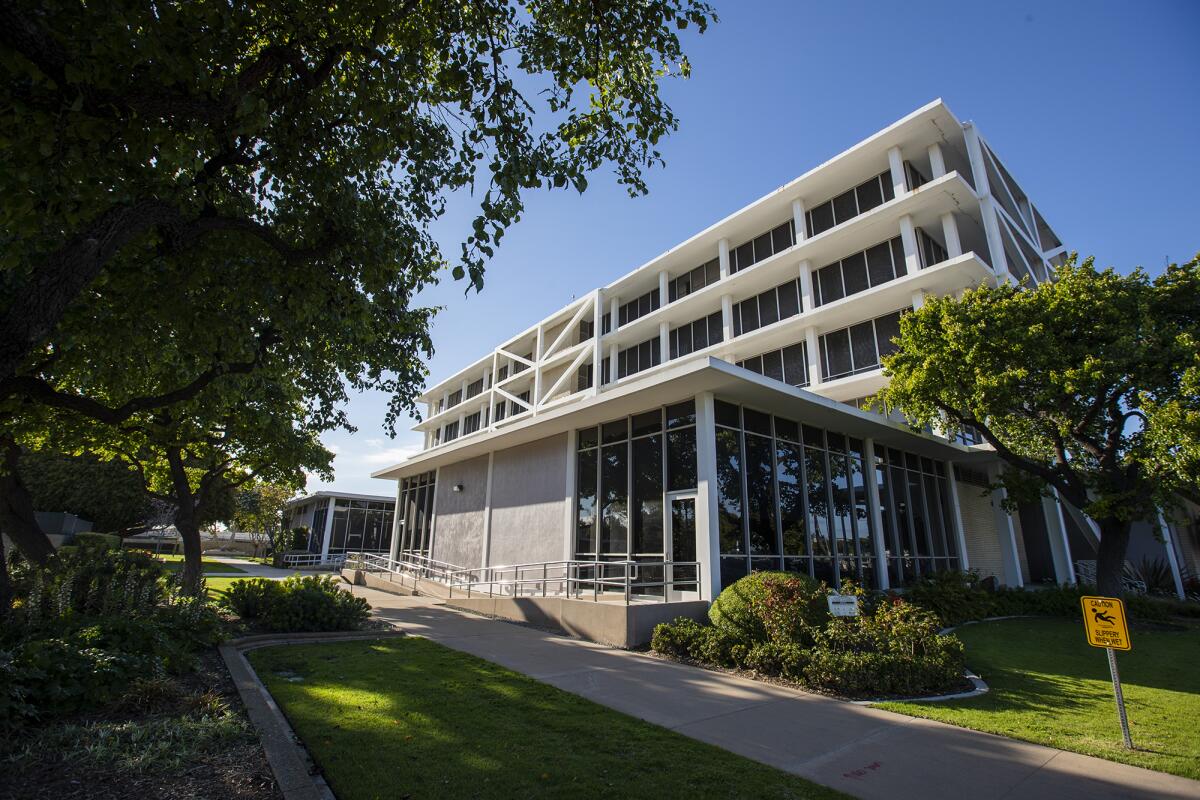Costa Mesa City Council fills planning commission seats, suspends street-sweeping tickets again

- Share via
Former Costa Mesa City Councilman John Stephens will return to public service after being appointed Tuesday to the Planning Commission.
Stephens left office in December following an unsuccessful reelection campaign in the city’s 1st Voting District.
Council members were tasked with filling four open seats on the seven-member commission, including Districts 1, 2 and 6 and one at-large position, from among 27 candidates.
Districted-seat appointees are first nominated by their district equivalent on the City Council and then voted on by the entire panel and appointed upon majority approval. The mayor is responsible for nominating a candidate for the at-large position, subject to the same approval process.
And that’s just what Mayor Katrina Foley did Tuesday when she selected Stephens to serve in an at-large capacity for a two-year-term.
“I think at this time it’s really important that we have somebody who has some experience with our housing element issues and our cannabis issues,” Foley said.
Council members unanimously approved the appointment in a 7-0 vote. Stephens will replace outgoing at-large Commissioner Marc Perkins, whose seat expired Jan. 31. Perkins did not seek reappointment.
The council was also unanimous in its decision to reappoint sitting planning commissioners Jon Zich in District 1 and Kedarious Colbert in the 2nd District. Both seats are for four-year terms.
Zich was appointed to the commission in June 2018 and reappointed in Feb. 2019, while Colbert, a former city planner in Texas, joined the panel in 2019.
To serve on the commission’s 6th District seat — left vacant by Jeff Harlan, who campaigned in November to represent his district on the City Council and won — council members agreed to appoint Costa Mesa resident Russell Toler from among 10 candidates.
“I know what it takes to do the job,” Harlan said. “Russell is a very experienced urban planner and has an excellent design aesthetic. He understands policy and is a thoughtful individual.”
In a message Wednesday, Stephens said he was grateful to be nominated to serve on the commission.
“There remains important work to do on issues like housing and economic recovery, and I look forward to collaborating with such a knowledgeable and diligent group,” he said by phone.
City suspends street-sweeping tickets during stay-at-home period
In other news Tuesday, City Council members agreed to temporarily suspend issuing tickets to vehicles that do not move to accommodate citywide street sweeping schedules, to help ease the economic burden of residents during the latest pandemic-inspired stay-at-home order.
Officials agreed people now forced to work from home have less motive and opportunity to move their vehicles on a regular basis. And with many residents out of work or facing economic hardship, issuing tickets for a relatively minor violation seems overly punitive.
“I don’t personally feel comfortable knowing we’re getting money fining our residents, especially during a pandemic,” Councilman Manuel Chavez said. “[This] is one small thing we can do to help out struggling families, particularly in low-income communities.”
City Manager Lori Ann Farrell Harrison acted on Dec. 23 in her capacity as the city’s emergency services director — a designation granted in March under the first coronavirus shutdown — to halt street-sweeping tickets during a regional stay-at-home order issued by the state in December.
A previous suspension was made in March and later lifted as restrictions eased and businesses came back online. Farrell Harrison reinstated the suspension on Dec. 23, and council members agreed Tuesday to ratify that decision.
The latest suspension is intended to last at least as long as Orange County remains under stay-at-home orders. With a single citation costing as much as $45, previous budget estimates have indicated the city roughly earns $1 million annually from street-sweeping citations.
Some members of the public argued against the loss of revenue, while others wondered at the environmental impacts of sweepers not clearing from gutters debris that will ultimately runoff into the Upper Newport Bay and, ultimately, into the Pacific Ocean.
But Councilwoman Arlis Reynolds said most of the purported $1 million revenue came from Costa Mesa neighborhoods hardest hit by the pandemic.
“[This] is a temporary direction to reduce the impacts on residents who are really struggling,” she said. “We’ve heard a lot of pain from residents who’ve been in areas that have been getting those tickets. So, frankly, it’s the least we can do.”
All the latest on Orange County from Orange County.
Get our free TimesOC newsletter.
You may occasionally receive promotional content from the Daily Pilot.




